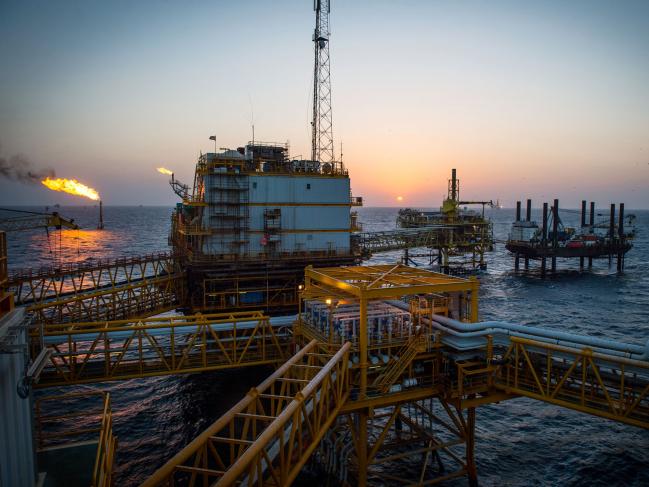(Bloomberg) -- Crude kept rising following its biggest weekly gain since late 2016 after President Donald Trump said he would impose “major additional sanctions” on Iran, exacerbating tensions in the oil-rich Middle East.
Futures in New York rose as much as 0.9% after surging 9.4% last week. Trump tweeted about the sanctions, days after he abruptly called off a plan for air strikes against the Islamic Republic in retaliation for the downing of a U.S. Navy drone. He also said he’s willing to hold talks with Iranian leaders with “no preconditions” to ensure the nation never acquires a nuclear weapon.
After falling to the lowest level in almost five months in mid-June, oil has rallied as escalating tensions between Washington and Tehran threaten to disrupt crude flows. Hopes that China and the U.S. will restart trade negotiations have also aided prices, with Trump set to meet with Chinese President Xi Jinping at the G-20 summit in Japan this week. There are as yet no details on the new sanctions on Iran, although the nation has managed to keep exporting some energy despite a U.S.-imposed ban from early May.
“The arrow is pointing upwards at the moment,” said Michael McCarthy, chief market strategist at CMC Markets Asia Pacific Pty in Sydney. “Neither side wants a war here but there is national pride at stake on both sides,” he said, adding that technical indicators were also pointing to further gains.
West Texas Intermediate for August delivery rose 39 cents, or 0.7%, to $57.82 a barrel on the New York Mercantile Exchange at 11:48 a.m. in Singapore after climbing as much as 52 cents earlier. It settled 1.4% higher on Friday, capping a weekly rally that was the biggest since Dec. 2, 2016.
Brent for August settlement advanced 28 cents, or 0.4%, to $65.48 a barrel on London’s ICE (NYSE:ICE) Futures Europe Exchange, after closing up 1.2% on Friday. The benchmark crude contract traded at a premium of $7.65 to WTI.
Trump’s decision to abort the strike on Iran may have prevented a war, for now, but fresh sanctions will increase economic pressure on Iran, possibly leading to more incidents. An attack by Yemen’s Iranian-backed Houthi rebels on Saudi Arabia’s Abha international airport on Sunday with an explosive-laden drone killed at least one person, state-run Saudi Press Agency reported.
See also: New Sanctions Coming on Iran But Trump Would Be Happy to Talk
While there’s some optimism the meeting this month between Trump and Xi will lead to a restart of negotiations, the state-run People’s Daily said in an editorial Saturday China had the strength and patience to withstand the trade war and would fight to the end if the U.S. persists with it.
Meanwhile, the Federal Reserve’s signal that it’s ready to cut interest rates and European Central Bank President Mario Draghi nudging toward unleashing more monetary stimulus have been buoying financial markets and improving the demand outlook for oil.
The market bias is positive because of that, as well as a “general optimism that the talks this week between Xi and Trump will see a resumption of dialog,” CMC’s McCarthy said.
